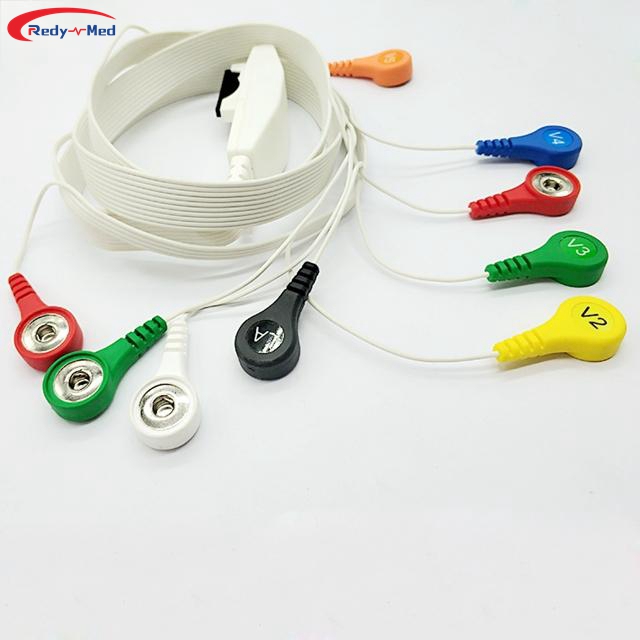
The color and position of the connecting line of the dynamic electrocardiogram lead
2024-03-21 00:04:44

The Role of Dynamic Electrocardiogram (DCG) Lead
Holter electrocardiography (DCG) is a non-invasive method used to monitor the electrical activity of the heart. It measures and records electrical signals from the heart by attaching electrodes to the patient's body. However, besides the electrodes themselves, the color and position of the connecting wires play a crucial role in DCG.
The Importance of Color in the Connecting Line
The color of the connecting wires is critical for healthcare professionals to read and analyze DCG results. Common connecting wire colors are red, yellow, green, blue, black, white, etc. Each color represents a different electrode and lead position. For example, the red connection wires are usually connected to the patient's right hand and right leg, the yellow connection wires are usually connected to the patient's left hand, and so on. Medical personnel can accurately understand and interpret the source of cardiac electrical signals through the corresponding relationship of colors. In addition, the correct color of the connecting wire can also help to avoid misdiagnosis and misidentification of related heart problems.
The Significance of Position in the Connecting Line
In addition to color, the position of connecting lines also plays an important role in DCG. Connecting wires located in different parts of the body are used to record specific ECG signals. In general, there are usually 12 leads in a DCG, each of which records a different aspect of the electrical activity of the heart. For example, lead V1 is located at the left border of the heart in the fourth intercostal space of the chest and can record the lateral wall activity of the heart. With proper placement of the connecting wires, healthcare professionals can precisely monitor and diagnose the extent and type of heart disease.
The color and position of the connecting lines of the Holter play a key role in medical diagnosis. The correct color and position can accurately record and interpret the heart's electrical signals, helping medical staff diagnose heart problems. Therefore, healthcare professionals should correctly select colors and place connecting wires according to standard specifications to maximize the accuracy and reliability of DCG.
Get the latest price? We'll respond as soon as possible(within 12 hours)




